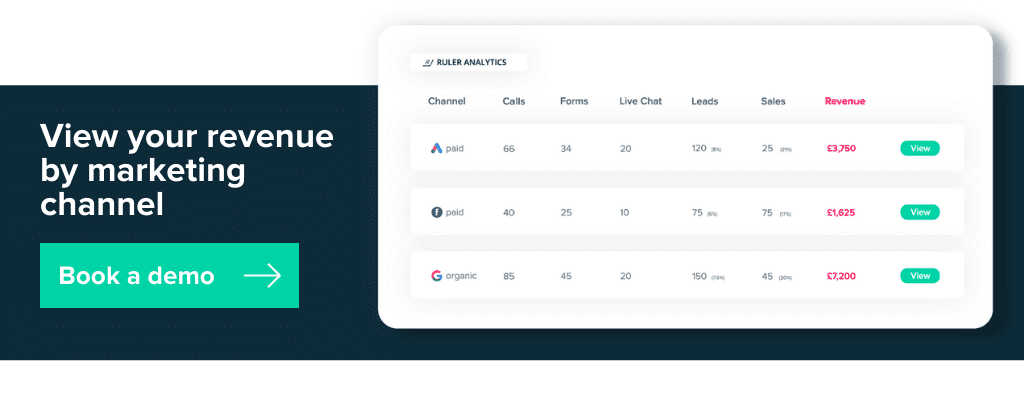Are you considering using Facebook ads for your law firm? We walk you through how to get the most out of Facebook advertising as a lawyer plus our top tips to ensure you’re creating ads that bring you cases, not likes.
Haven’t you heard? Organic Facebook reach is dead. But don’t worry, paid-for Facebook ads are a great way for you to reach a highly targeted audience looking for your exact legal services.
Keep reading to find out how to set up legal-focussed Facebook ads to help you drive more cases for your law firm.
⚡️ Pro Tip
Have you tried setting up PPC ads for your law firm? Read our blog on how to outperform your competitors in legal across PPC advertising.
In this blog, we’ll go through the best ways to optimise using Facebook ads to promote your law firm.
Let’s get stuck in!
Ok, ok, we said organic Facebook is dead. The truth is, it isn’t. It’s just different. In the good old days, organic Facebook was a great way to reach new audiences and generate customers.
Nowadays, Facebook is a pay-to-play space if you’re looking to get leads.
But that doesn’t mean organic Facebook isn’t important. Social proof is a great way to convert users from consideration to decision so fill your law firm’s business page with testimonials, reviews and case studies.. If you’re looking for more tips to maximise your channels, then check out our full guide to legal marketing.
Even if you’re not investing a lot of time (or budget) into Facebook content, here are some quick easy wins for your page;
1. List your website or your phone number as your main CTA
What’s a social page without a CTA? Use the CTA option on your Facebook page to drive visitors to your website or straight to call your business.
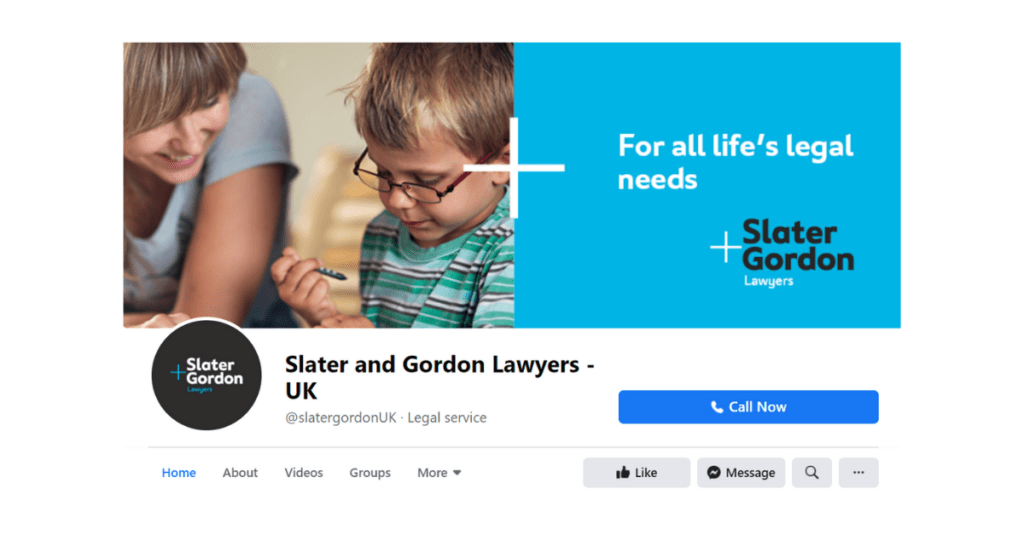
2. Pin a key post you want all potential leads to see
Pinning a post on Facebook is a great way to get eyeballs on the right content to help convert visitors into legal leads.
Perhaps a post with some key information on which case types you work on. Or, you might want to use pinned posts to highlight a new offer, or a refer a friend scheme.
3. Ask your clients for reviews on Facebook
Facebook business pages are a great way to highlight your great customer service. This is a great way to stand out from the thousands of other legal firms online. Social proofing is a proven method to help convert potential legal leads to new cases. Once a case has closed, send a quick email asking for a Facebook review.
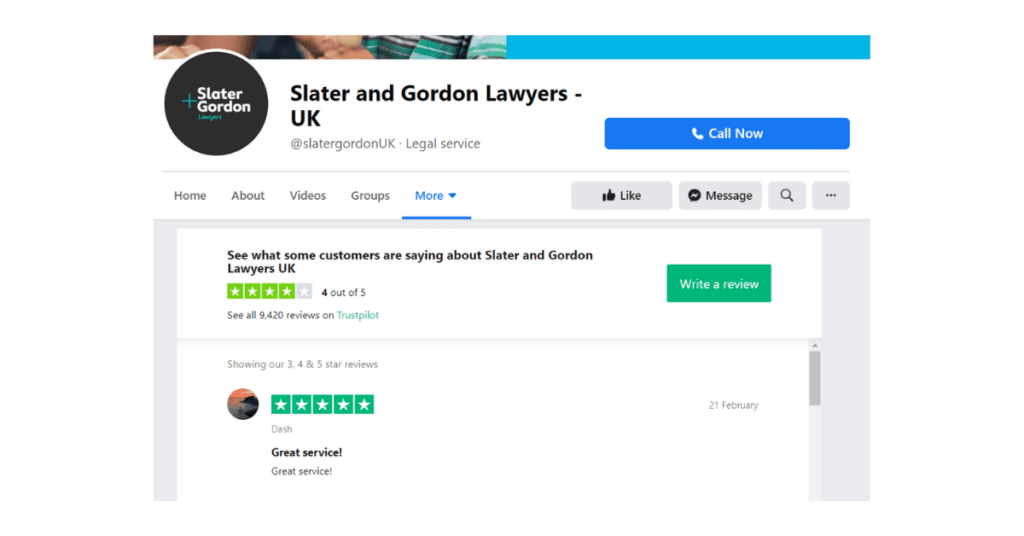
Once your organic Facebook page is optimised and you’re sharing regular quality content, you’re ready to start thinking about Facebook ads.
Targeting is your best friend when it comes to advertising. But remember, you need to be smart about it. You can’t target married people to advertise your divorce team. It likely won’t go down too well.
✏️ Note
Measure your impact on marketing with Facebook attribution. Read more to find out how you can connect the dots between your sales and revenue.
Here’s what to consider when you’re thinking of starting a paid Facebook campaign.
There are plenty of advert options when it comes to Facebook.
The most beneficial ad type for legal marketers has to be lead adverts. These ads allow you to give viewers an option to instantly become a lead by filling in a form. Remember though, they only work on mobile.
The best part? Facebook uses saved information on users so they can fill the form in automatically!
Click-to-call adverts on Facebook are a great way to get inbound calls to your law firm. We wrote a whole guide to this ad type. So check that out here.
If you are using an organic Facebook page to share content, then a boosted post might be for you. Here, you can boost an originally organic post through paid promotion.
You might want to try boosting a social proofing post to highlight your high-quality service. This is a great way to boost your reach and grow likes on your page.
These are the most popular types of adverts on Facebook. You can add a video, a picture or a carousel of images to a link post. If you use landing pages for each of your case types, this is a great way to drive traffic.
Other ad options include dynamic ads and instant experience adverts. But these are generally more eCommerce friendly options.
Now you know a bit more about the ad types out there, there are some key targeting strategies to consider too.
Targeting is essential on Facebook to ensure you’re putting your ads in front of the most refined audience you can.
One of the more basic targeting options is to target through the user’s location. This works best if you’re a small firm. Or, if you have data on where your cases happen more frequently, you could use that to create targeted geographical audiences.
For example, if you help people make claims with Japanese knotweed, you could use your historical data to find out where the weed is most prevalent. From there, you can send highly targeted adverts to those specific areas.
Another good targeting option for Facebook ads for lawyers is job titles. This is particularly useful for those working in employment law.
It’s simple to set up but its limitation is that it requires the job title to be filled in by the user. With increasing concern around data privacy, users are a little more careful with what data they include on their profiles.
One type of retargeting is to target people who have previously visited your website.
You can do this by setting up a pixel on your website. This will act as a communicator between your website and Facebook. Once Facebook has collected enough data, you can begin setting up ads.
You might want to send adverts to people who have visited particular landing pages. Or, if you have proper tracking set up, you could even target people who visited a landing page but didn’t convert. This highlights a keen interest in your legal service, but they might just need an extra nudge.
Another great use of retargeting is to retarget users based on their Facebook activity. You can target people who have liked particular pages or engaged with particular content.
You might try targeting competitor’s audiences, or get granular by targeting users who have completed
Another great targeting feature is lookalike audiences. They can be tricky to set up, but they’re worth it.
You can create lookalike audiences using an export of your current clients. Or, you can create lookalike audiences based on people who have visited your site. There are endless possibilities with lookalike audiences and they’re certainly worth investigating.
Last but not least is age. This is a great way to cut your audience sizes down so you can get more granular with your targeting.
So now you know more about the ad types available and how you can target them, we’re going to walk you through setting one up.
P.S. Want to know how to properly track your Facebook ads in Google Analytics? We show you how to attribute the revenue generated from your ads. Don’t miss it! For this example, we’re going to show you how to set up a lead form. Remember, we’ve got complete instructions on how to set up a Facebook click-to-call ad too.
First, select your campaign objective. Remember, choosing particular campaign objectives will preset you to particular ad types too.
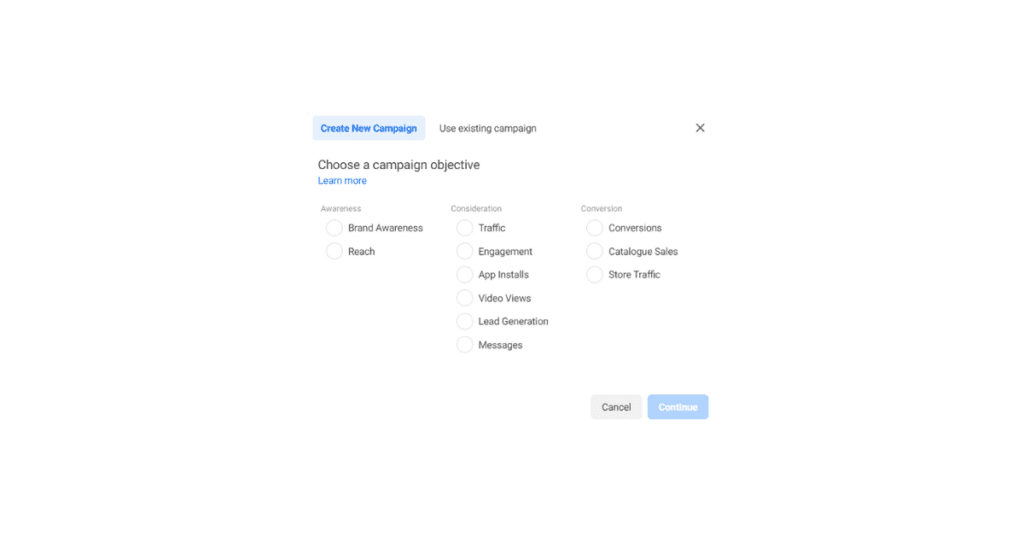 2. Set your budget and schedule
2. Set your budget and scheduleAdd whatever budget you plan to spend and set your schedule. Remember, you can always add more budget if you need to. Facebook’s audience definition will give you a good idea of how many people you will reach for your set budget.
This is where you target who you want to reach with your ad. Remember what we said about how to segment and target your audience. Facebook ads for lawyers need to be direct and highly-targeted to interested parties in order to get a good conversion rate.
Not sure on what conversion rate to be aiming for across paid social? Our legal conversion benchmark report has done the hard work for you. Download it now to find out average conversion rates across channels.
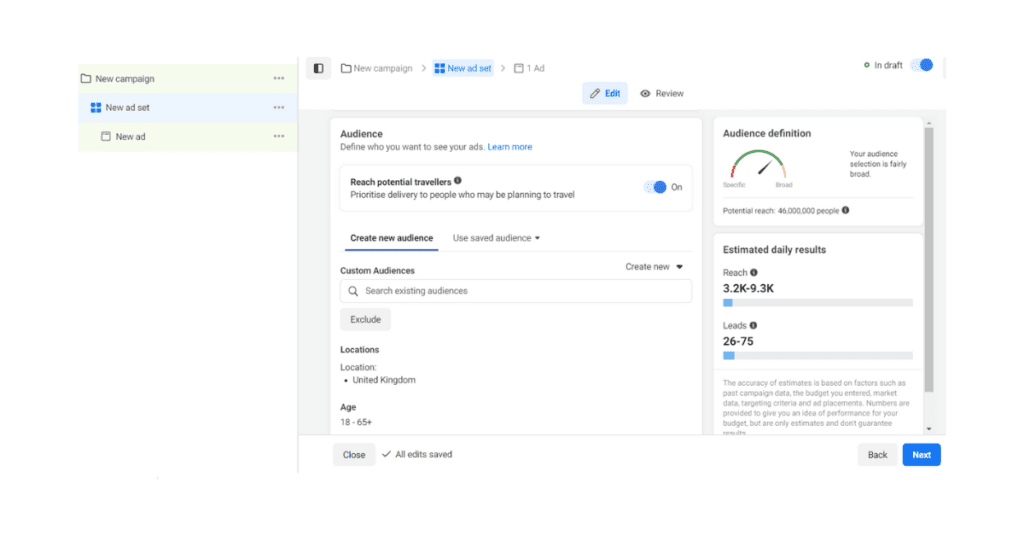
Add your creative. Whether you’re using a picture, video, or are opting for a lead form, add copy and a strong CTA to get those conversions.
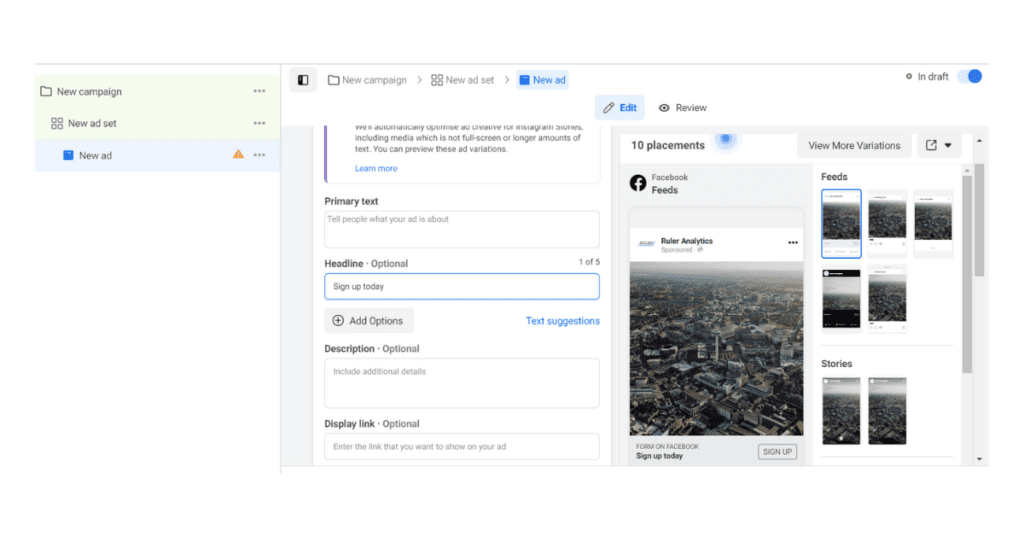
And that’s it! You’re ready to go live. Schedule your ad and Facebook will give it a once over to check it meets their guidelines before setting it live. Now, we sit and wait for the conversions to roll in.
This is undoubtedly the most important step of any ad campaign. Reviewing your ads, both in terms of clicks and conversions but also revenue is vital to understanding how it’s affecting your bottom line.
To round it all off, here are some top tips when you’re getting started with Facebook advertising for your law firm.
Related: Benchmark yourself with our legal conversion benchmark report
While you still want to track your Facebook ad impact on new leads, ideally you want to track it on new cases. While a lead is a good starting point, they’re not guaranteed to turn into a client.
So what if you could report on your Facebook ad’s success at driving new clients? Well, you can.
With tools like Ruler Analytics, you can track your leads through to when they become a client, and to when they close into revenue.
Going beyond lead generation means you can optimise your ad campaigns and test your creative.
Remember that setting an ad isn’t just an easy ticket to more leads. You need to offer value to your potential clients. Share valuable content that shows your expertise, your great customer service or how you go above and beyond.
If you’re using a marketing attribution like Ruler then you’ll be able to see your leads and closed revenue for more than just your Facebook ads.
You’ll be able to properly judge every channel and piece of content by how many leads its generating, and how much revenue they’re ultimately bringing in.
We’ve already said it, but Ruler is a marketing attribution tool that helps you connect your lead and marketing data to your revenue data.
It works like this.
A user interacts with your website through a particular channel. Ruler starts tracking that user for that and all later sessions too.
When the user converts, no matter if that’s via a form, a call or a live chat session, Ruler will fire all of the marketing data held on that user to your CRM. This gives your first response team great insight into their leads.
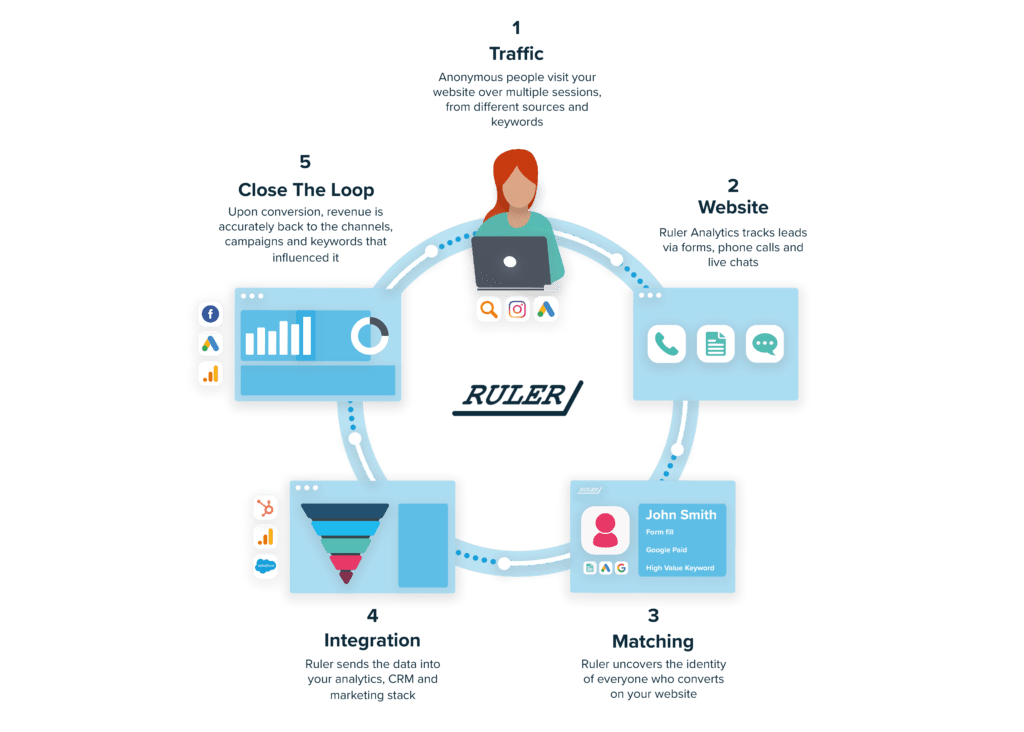
Ruler will continue to track the user. Then, when their case closes, whether that’s in a few months or a few years, Ruler will scrape the revenue data added to your CRM and fire it over to your marketing apps.
That means you can see which channels, campaigns and adverts are driving more leads, but also more revenue. From there, you can optimise your outputs to make sure you’re putting your budget where it’s most effective and spending time on the content that matters.
Want to find out more about how Ruler can solve the disconnect between visitors to your website and leads that come through to your legal first response team?
Read our full guide to marketing attribution to learn how you can get started, or book a demo to see the data in action.
